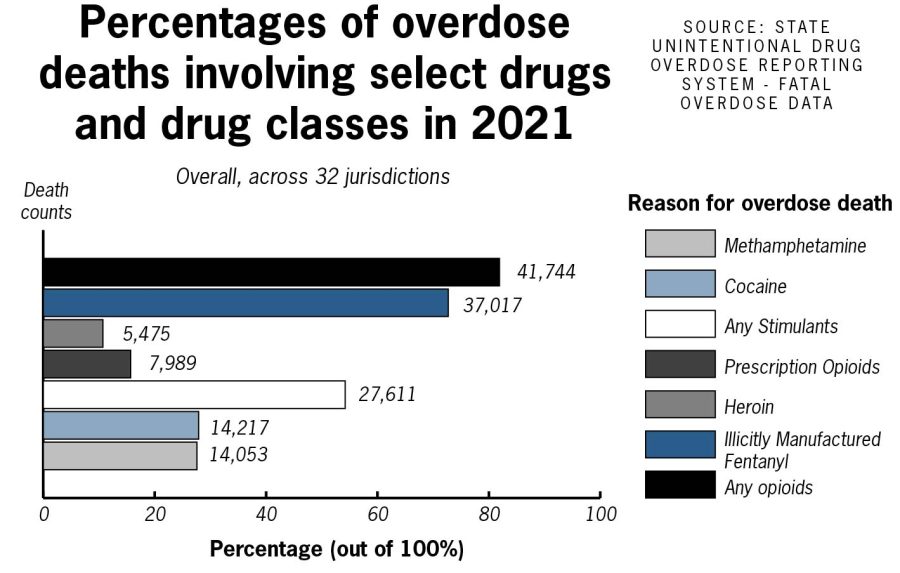FDA approves first nonprescription Naloxone nasal spray for over-the-counter use
April 13, 2023
The U.S. Food and Drug Administration approved Narcan, a medication that reverses the effects of opioid overdoses, for over-the-counter sale and non-prescription use on March 29 in an effort to mitigate the persisting national drug overdose crisis.
Narcan, a spray form of Naloxone now coined OTC 4 Narcan, quickly reverses the effects of opioid overdoses by blocking receptors and preventing symptoms such as slowed breathing and reduced heart rate. These effects typically take place two to three minutes after its administration.
The FDA first approved Naloxone as a prescription-only medication in 2015. Data from the National Library of Medicine showed the public could safely use it without assistance from a medical professional.
In 2016, Lucas Hill, clinical associate professor at the College of Pharmacy, created Operation Naloxone, a service learning program that trains students how to administer Naloxone and provides treatment for opioids.
During training and outreach events, Hill said residence hall front desks have provided students with Narcan since 2016, so the new OTC regulation will not affect on-campus availability heavily.
“OTC Narcan 4 mg is a step in the right direction as it resolves some of this confusion and makes it easier for organizations to purchase this naloxone product,” Hill said in an email.
UTPD officers are also trained on overdose responses. Post-pandemic, the University added distribution sites at the Perry Castañeda Library, Sid Richardson Hall and the Life Science Library.
According to recent research from the National Library of Medicine, anywhere from 4% to 19.7% of U.S. university students misuse prescription opioids at some point in their lives. Lori Holleran Steiker, professor of addictions and substance abuse services, said these percentages emphasize the need for opioid prevention programs.
“Even those students who are not readily misusing substances may need someone to have Narcan available for a friend, a roommate, (or) a family member,” Holleran Steiker said in an email. “We need students that are concerned about others to carry naloxone because a person who is overdosing cannot self administer!”
Holleran Steiker said it’s important for people to keep Narcan on hand as it becomes more accessible so they can administer it to someone if necessary.
“There are many things that need to change for us to abate the Opioid Epidemic and a full ecosystem of responses in medical and community settings is being designed in Texas,” Holleran Steiker said. “Naloxone availability is a critical piece in the puzzle.”



